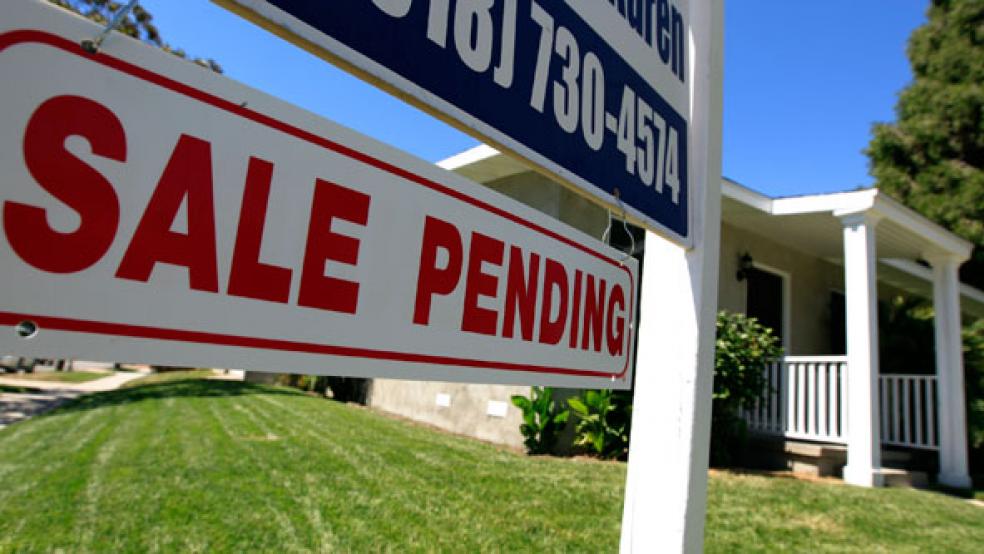The economic recovery seems to be slowing, the job picture looked a little more dismal last month, manufacturing is off a bit and consumer confidence is flattening. But hey, spring is coming and now may be the perfect time to buy a house. Or so says a new “Market Pulse” analysis by CoreLogic, a leading provider of information, analytics and business services.
“The economy is sliding sideways, in part due to the dampening effect on consumer sentiment from increased gasoline prices, but also because the mild winter may have ‘pulled forward’ the economic activity,” analyst Mark Fleming wrote. “The real-estate market may be experiencing a nascent recovery as many of the statistics continue to show slight positive signals.”
RELATED: 12 Hottest Housing Markets for 2012
And even signs of an increase in mortgage interest rates were discounted as a significant potential headwind. The CoreLogic analysis of housing affordability indicates that any moderate increase in rates is unlikely to materially change housing affordability from its current level, which it deemed the “best in two decades.” Moreover, a rent-to-mortgage ratio for residents of Miami included in the study suggests that it is becoming cheaper for many to purchase a home than to continue to rent an apartment.
This upbeat assessment that now may be the time to buy is shared by many consumers. Nearly three-quarters of Americans said they thought it was a good time to buy a home last month, with expectations that rental and purchase prices will rise over the next year and as consumers’ views of their finances stabilized, according to a new monthly survey by mortgage finance company Fannie Mae.
“Conditions are coming together to encourage people to want to buy homes,” said Doug Duncan, Fannie Mae chief economist, in the Wall Street Journal.
The portion of Americans who indicated that it is a good time to buy in March–73 percent –was up 3 percentage points. The percentage of those who said it is a good time to sell rose by 1 percentage point to 14 percent. The portion of participants who expected home prices to increase over the next 12 months improved to a third last month, from 28 percent. On average, consumers expected U.S. home prices to increase 0.9 percent. A record 49 percent of respondents expected rental prices to increase, the highest number since Fannie Mae began tracking the metric in June 2010. On average, consumers expected rents to rise 4.1 percent. Also, more respondents expect that mortgage rates–currently around historic lows–will increase over the next year: at 39 percent, up by 5 percentage points.
The notion that we are fast heading into a housing buyers market stems in part from new Census Bureau data from the Housing Vacancy Survey showing that household growth remained stagnant in 2011, rising only 0.6 percent. While that is in line with household growth since 2007, it is still well below household growth rates in the early part of the decade. “This is good news for the housing sector as it implies that there is pent-up household information demand,” Fleming wrote.
In February, sales increased 11.5 percent from a year ago to 280,100 units. Over the past 12 months, there were 3.9 million homes sold, which is slightly above the pace in calendar year 2011, but below 2010's pace. The distressed sale share dropped to 26.1 percent in February, down from 28.4 percent in January, staying within a narrow range since last summer.
Housing affordability, a ratio of the typical household income relative to the annual income necessary to buy a median priced home at prevailing mortgages rates and under reasonable underwriting criteria, decreased dramatically in the early to mid 2000’s as home prices rose, despite low mortgage rates. Since the peak in home prices, mortgage rates have declined even further, home prices have declined and affordability has risen dramatically, according to the report.
In short, housing affordability is at levels not seen since prior to the early 1990s and is almost twice the level that it was in April 2006, the peak month for house price levels, when housing was the least affordable.
“While real estate professional often say that ‘now is a good time to buy,’ it is clear today that April 2006 was probably not a good time to buy, while now may well be the time,” the report states.





